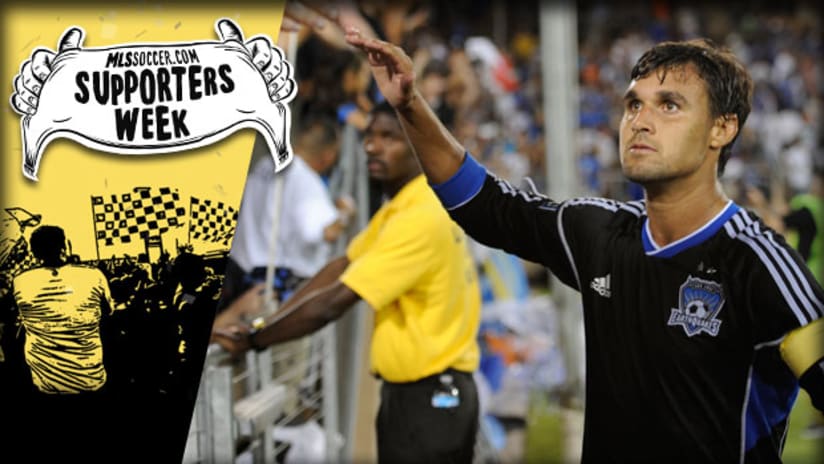NEW YORK – Like most things these days, the idea sprouted from an e-mail, a simple request for feedback from supporters group leadership ahead of the 2012 MLS campaign.
The responses that trickled into newly minted MLS senior director of supporter relations and safety Evan Dabby’s inbox were nearly universal: the gameday experience trumped all but there seemed to be a gap in understanding between the league’s most ardent fans and the individuals assigned to monitor their sections.
A solution, one still in its nascent phase? A steward training program, developed in conjunction with crowd management leaders Contemporary Services Corporation, designed to help gameday security more accustomed to regulating the tamer habits of fans in other venues understand and appreciate MLS supporter culture and its role in creating an atmosphere that’s unlike what they see at other American sporting events.
“I liken it to where the league was when I started in 1998 and watched the broadcasts in the early years when those doing camera work just literally didn’t know the game of soccer,” Dabby told MLSsoccer.com. “They’d maybe come in to get some extra paydays from basketball, football or what have you. They didn’t understand the game, and I think security was in a similar place.
WATCH: Google + Hangout on Tuesday for #SupportersWeek at 5:30 pm ET
“This is something we’ve developed to help educate and correct that curve. I’d like to think 10, 20 years from now the supporter culture will be what we aim to achieve. Everyone will understand it. But in the short term, this training intiative can expedite that.”
The initiative started in 2012 with pilot programs surrounding the AT&T MLS All-Star Game in Philadelphia and MLS Cup in Los Angeles. Training sessions are now being rolled out at the club level during which supporters group leadership is also encouraged to attend and provide insight into the mindsets and concerns of their respective groups.
The three-hour program, which focuses on de-escalation techniques, the history of supporter culture and its role in the growth of MLS and strategies to resolve specific in-stadium scenarios, has been completed in half of the league markets with the remainder scheduled to be finished by the end of the 2013 season.
Perhaps the biggest benefit, however, is the relationship building that occurs between the stewards and the supporters they interact with each matchday.
“When you know another person, it’s certainly much easier to manage through a challenging scenario or conflict,” Dabby said. “We emphasize relationships so they get to know each other outside of the passion of the game when there are many factors that might otherwise inhibit talking through a problem.”
So far, Dabby says the feedback from both sides has been positive, but he acknowledged the process is just the beginning of the effort to bridge the gap between the league’s commitment to providing a safe, enjoyable environment for every fan and fostering supporters’ desire to create the best environment possible.
Supporters Week: A celebration of the North American supporter culture
“The focus for me the past two years has been fostering a balance of improving the gameday experience without sacrificing safety,” he said. “Anyone who listens, we want the approved smoke, we want the flags, the tifo and the instruments within that structure.”
The policies that regulate those mainstays of supporter culture are dictated by each club and venue and can be found in the code of conduct for each facility, while the use of smoke devices must be signed off on by the fire marshal and adhere to local code.
But smoke or not, Dabby said it’s clear that supporters play a crucial role in driving MLS toward its goal of being one of the world’s top leagues by 2022, and resources are being allocated according. The steward training program is just one of the initiatives in place to help push that along, the hope being that the men and women in the stands won’t just be among the elite – they’ll be on top.
“I think there’s an opportunity for the MLS supporter experience and MLS supporter culture to be the best in the world – in the way they conduct themselves, the active involvement they have in the community,” Dabby said. “That’s a credit to primarily to the supporters themselves because it’s something they take on with their own passion.”










